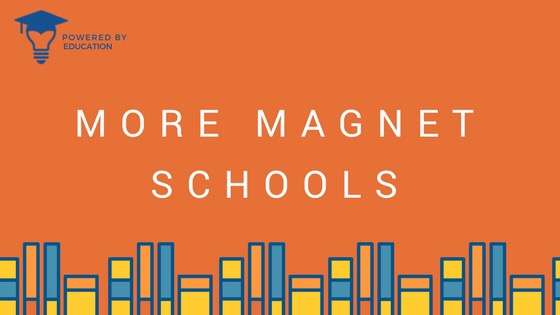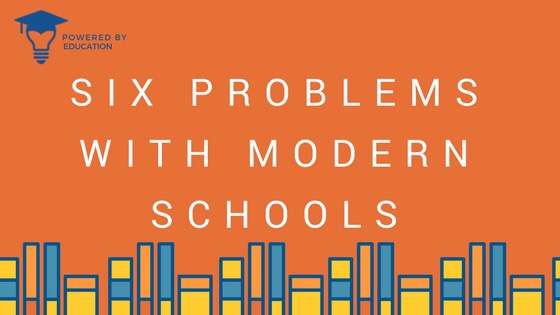You have more options than you may think…
Brick & Mortar Public Schools
Compulsory Attendance
Your child’s age is your first indicator of his or her eligibility for beginning school. Students may start kindergarten if they turn five on or before September 1st. A child does not have to enroll in school at age five, but must be enrolled in 1st grade if he or she is six on or before December 1. see more >
Required Documentation
Michigan school districts set the requirements for what documentation is required prior to enrolling a student in their district. To get that information, contact the district directly.
Some legal documents are required for Michigan students to attend school:
- Certified Birth Certificate/proof of identity
- Official copy of records/transcripts from the previous school the child most recently attended
- A shot immunization record (or proof that immunization is not required for the child)
- Click here to view the immunization requirements
- Proof of home address (for example, a rental agreement or tax statement)
School Fees
Paying some fees is a part of public education, though it is primarily a free education. Students are expected to supply their own basic school supplies such as paper, pencils, and notebooks. Each district has a list of approved expenditures for students. Fee waiver forms can be requested from the school if there is a situation that prevents a family from being able to pay for required materials or events.
Some typical items on that list include:
- Lunch
- Summer school
- Student parking passes (high school)
- Lost textbooks
- Late or lost library books
- Field trips
- Special class-required fees (e.g., science lab fees)
Public Charter Schools
What are Charter Schools?
Charter Schools are tuition-free public schools operated by independent, non-profit governing bodies.
Parents, teachers, and community leaders sign a “charter” or contract with a school district or state agency to create a charter school and give students more educational options than their assigned school. Charter schools have flexibility over classroom hours, curriculum, and employment policies, but are subject to periodic reviews based on student performance. In Michigan public charter school students are measured against the same academic standards as students in other public schools. Local boards of education monitor the academic and financial performance of charter schools, and, can revoke or refuse to renew a school’s charter.
Michigan Charter Schools
There are over 100 Charter schools in Michigan. To find yours, visit CharterSchoolTools.org
Frequently Asked Questions
For more information about charter schools visit the Michigan Department of Education
Enrollment
Most charter schools do not have attendance zones. If you are interested in applying for your child, you must apply directly to the school. The application and selection process can be quite complicated. Make sure to contact the school early to determine the correct next steps to applying.
Virtual Public Schools
Before the 2016–17 school year, each local board of education adopted a policy providing at a minimum, a virtual education option for eligible students in Grades 9–12, inclusive, beginning with that school year. Most have programs available for students 8–12 grade. Check your local school district for details.
Michigan Virtual Charter Academy
phone: (877) 794-9427
grades: K–12
Michigan Great Lakes Virtual Academy
phone: (855) 380-2480
grades: K–12
Jenison International Academy
phone: (616) 457-8477
grades: 6–12
Lake City Area School District
phone: (231) 839-6600
grades: K–12
Michigan District Virtual Programs
phone: (800) 841-8162
grades: K–12
Virtual Vantage Cyber Academy
phone: (269) 427-6800 ext. 2100
grades: 9–12
Virtual Learning Academy Consortium
phone: (888) 638-8949
grades: K-9
Private Schools
What makes a school “private”?
Private schools charge tuition, and many have a religious mission. Some private schools offer families assistance to make tuition payments. Click below for the complete list of over 900 private schools across the state.
Private School Review offers free, detailed information on U.S. private schools combined with useful community data (e.g., housing costs) and maps of the surrounding areas.
*Information on non-public school admission requirements should be obtained from the school directly.
Educational Choice Programs
There are currently no educational choice scholarships in Michigan. Although, The Mackinac Center and Michigan Catholic Conference are continuing to promote private school choice through a constitutional amendment.
For more information on policy change or to get involved in the school choice movement in Michigan visit EdChoice.
Private Virtual Schools
George Washington University Online High School is an online college preparatory academy for motivated students who are willing to be challenged to become the best students and persons they can be. Combining award-winning curriculum with small class sizes and intensive college counseling, students receive a flexible, individualized education attuned to their own needs and goals.
International Academy is a K12, Inc accredited, online private school for grades K–12. Students earn a U.S. high school diploma while using award-winning K¹² curriculum
They offer extensive, individualized academic and counseling support keep students on track. The flexibility allows students to explore their passions. Full-time and part-time options are available.
International Connections Academy is a fully-accredited, online, college preparatory private school serving K–12 students worldwide. The program combines a top-rated curriculum with talented teachers, cutting-edge technology, the flexibility to learn at home, and direct family involvement to ensure each student realizes his or her full potential.
The Keystone School offers flexible education programs for high school and middle school students. Whether your student wants to study full-time or just needs individual classes, they offer more than 170 courses from credit recovery to world languages and AP. Students can enroll at any time.
Home Education
Your options
In Michigan, parents have two options when it comes to educating their children at home. These options are: Homeschooling under Michigan’s homeschool statute or Homeschooling as a nonpublic school. Parents in Michigan may choose to homeschool their own children in grades K – 12. Below are descriptions and necessary requirements for each option. learn more >
Under Michigan’s homeschool statute
Parents who are teaching their own children at home under the homeschool statute are required to use an organized educational program covering the subject areas of reading, spelling, mathematics, science, history, civics, literature, writing, and English grammar. The statute does not require parents to notify local government or education authorities that they are homeschooling. The statute specifically notes that parents are authorized to give home instruction. If a nonparent is significantly involved in delivering instruction, contact HSLDA for specific guidance about your situation.
With a nonpublic school:
To homeschool your children by operating as a nonpublic school, you will need to follow these requirements.
1. Ensure that the instructor has the required qualifications.
The instructor in a homeschool operating as a nonpublic school may be either a parent, or another person chosen by the parent. Regardless of who the instructor is, he or she must have a teaching certificate, a teaching permit, or a bachelor’s degree.
Parents instructing their children who have a religious objection to teacher certification do not have to meet any of the above teacher requirements. However, this exception only applies when the parent is the instructor; it does not apply to an instructor who is not the parent.
2. Provide annual notification that you are homeschooling as a nonpublic school.
At the beginning of each school year, you are required to send the following information to the local public school superintendent: a) the name and age of each child enrolled in your school, b) the number or name of the school district and the city or township and county where the parent lives, c) the name and address of the parent, and d) the name and age of any child enrolled in the school who is not in regular attendance.
The Michigan Department of Education is authorized to request, in writing, your nonpublic school’s records of pupil enrollment, courses of study, and qualifications of teachers. You do not need to submit this information unless it is requested in writing. Michigan State Form SM-4325 has been developed by the Department of Education for use in reporting this information; for the benefit of our members, HSLDA has a copy of the form available here. Please call or email us if you have any questions about this.
3. Teach the required subjects.
Children in nonpublic schools must be taught mathematics, reading, English, science, and social studies in all grades. They must also be taught health and physical education.
In the high school grades, children must also be taught:
- the U.S. Constitution,
- the Michigan Constitution, and
- the history and present form of civil government in the U.S., Michigan, and Michigan’s political subdivisions and municipalities.
Required subjects
Both of Michigan’s legal options for homeschooling require that certain subjects be taught. While there are no specific requirements for how often each of the subjects must be taught or at what grade levels, HSLDA’s general recommendation is that each of the required subjects be taught at an age-appropriate level every year during the elementary and middle school years, and at least once at the high school level.
Dual Enrollment
College Credit
The Michigan State Legislature passed Public Act 160 of 1996, the Postsecondary Enrollment Options Act and Public Act 258 of 2000, the Career and Technical Preparation Act also known as the “Dual Enrollment” bills. These bills modify and expand on provisions of the State School Aid Act providing for students to earn college credit while in high school. The bills also require that the board of a school district or public school academy ensure that each student in eighth grade or higher be given information about college course taking opportunities. The classes that students are eligible for must not be offered by the high school or academy and must lead towards postsecondary credit, accreditation, certification and/or licensing.
MDE Dual Enrollment Contacts:
Sam Sinicropi – sinicropis@michigan.gov – 517-241-0439 (Programmatic Questions/Issues)
Eric Lipinski – lipinskie@michigan.gov – 517-241-6895 (Programmatic Questions/Issues)
Christopher May – mayc@michigan.gov – 517-335-1263 (Financial Questions/Issues)
The contacts above are able to assist with all topics related to Dual Enrollment, but their primary focus is on the areas in parentheses.
MDE Dual Enrollment FAQs: Dual Enrollment Frequently Asked Questions (FAQs)
Course Fees
The Michigan Department of Education (MDE) administers the Dual Enrollment Program and works closely with Student Scholarships and Grants (SSG). High school students attending a private high school are determined eligible by the MDE. SSG then pays the college for each eligible student.
Students who are dual enrolled in college courses and high school classes at the same time are not eligible to use the Tuition Incentive Program (TIP) to cover the cost of tuition. Refer to the TIP Fact Sheet for details on the program.
More about Magnet
Today Magnet Schools of America released a study showing [...]
The Foundation for Blended and Online Learning
In January, K12, INC. announced the launch of The [...]
Six Problems with Modern Schools
The modern school system was created during the Industrial [...]
Charter vs. Magnet
Today, we answer the age old question... what is [...]
Charter School Lottery: Explained
Many question how charter schools choose which students attend [...]




